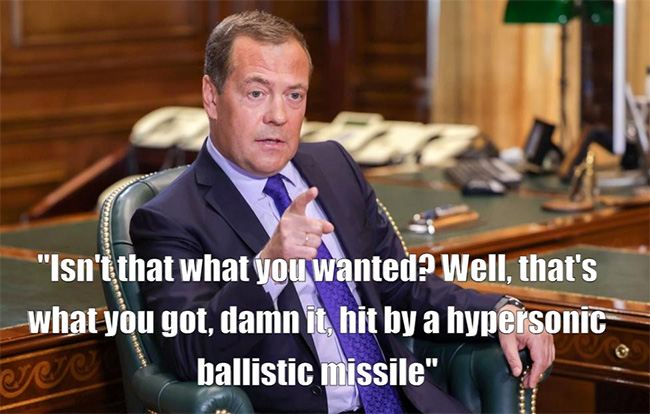
The British Government must consider if it wants to bear the consequences of being an outlier on the continent, attracting the Kremlin’s wrath? – notes The UnHerd.
The Kremlin released a list of 16 British Cabinet ministers forbidden from entering Russia as “punishment” for their “reckless policies” and “anti-Russia activities”,
Given the unlikelihood of Deputy Prime Minister Angela Rayner embarking upon a mini-break in Moscow, this measure is clearly yet another attempt by Russia to find the most visible methods of targeting Britain. Think back to last month’s chaotic scenes when a mob harassed senior British diplomats at a Moscow airport, or summoning of the British Ambassador over alleged spying by one of his diplomats, with the Kremlin even naming the suspect.
So why is the UK such a target for Moscow? Some of the motivation behind the latest moves will undeniably be the necessity of presenting a robust public response to Ukraine’s use of Franco-British Storm Shadow missiles against military targets in Russia. Yet there are also longer-term reasons for Russian discontent. The UK has long served as an adopted homeland for those who have fallen out of favour with the Kremlin…
As for why Moscow adopts such overtly harsh methods, the answer perhaps lies in the UK’s immunity to softer means. While Russia can strive to weaken support for Ukraine in other European capitals by funding and promoting pro-Moscow parties, there are no mainstream British political parties in favour of Russia or which advocate cutting aid to Ukraine. The closest British political life has is Reform UK leader Nigel Farage’s occasional interventions on the topic, and even those provoke considerable controversy. Given the public and political consensus around supporting Kyiv, Moscow’s only hope of reducing support can be broad, brute-force techniques aimed at making the British electorate question whether assisting Ukraine is worth the cost.
Besides, there is little to lose in bullying the UK, which lacks the military heft of America and the solidarity enjoyed by EU member states. It further suits Russia’s geopolitical aims: in trying to strengthen its ties with the Global South to overcome sanctions and diplomatic isolation,
Moscow has — with apparently no regard for irony — positioned itself as an anti-imperialist power. In this context, the Kremlin’s repeated references to the “British Empire” and public humiliation of UK diplomats help it appeal to both nationalistic elements at home and postcolonial audiences overseas.
It should therefore come as no surprise that the UK has made itself a target of Russia. In that light, the British Government must consider if it wants to bear the consequences of being an outlier on the continent, attracting the Kremlin’s wrath but lacking the military resources to intimidate it. Expect greater humiliation to come.

read more in our Telegram-channel https://t.me/The_International_Affairs

 11:19 29.11.2024 •
11:19 29.11.2024 •






















